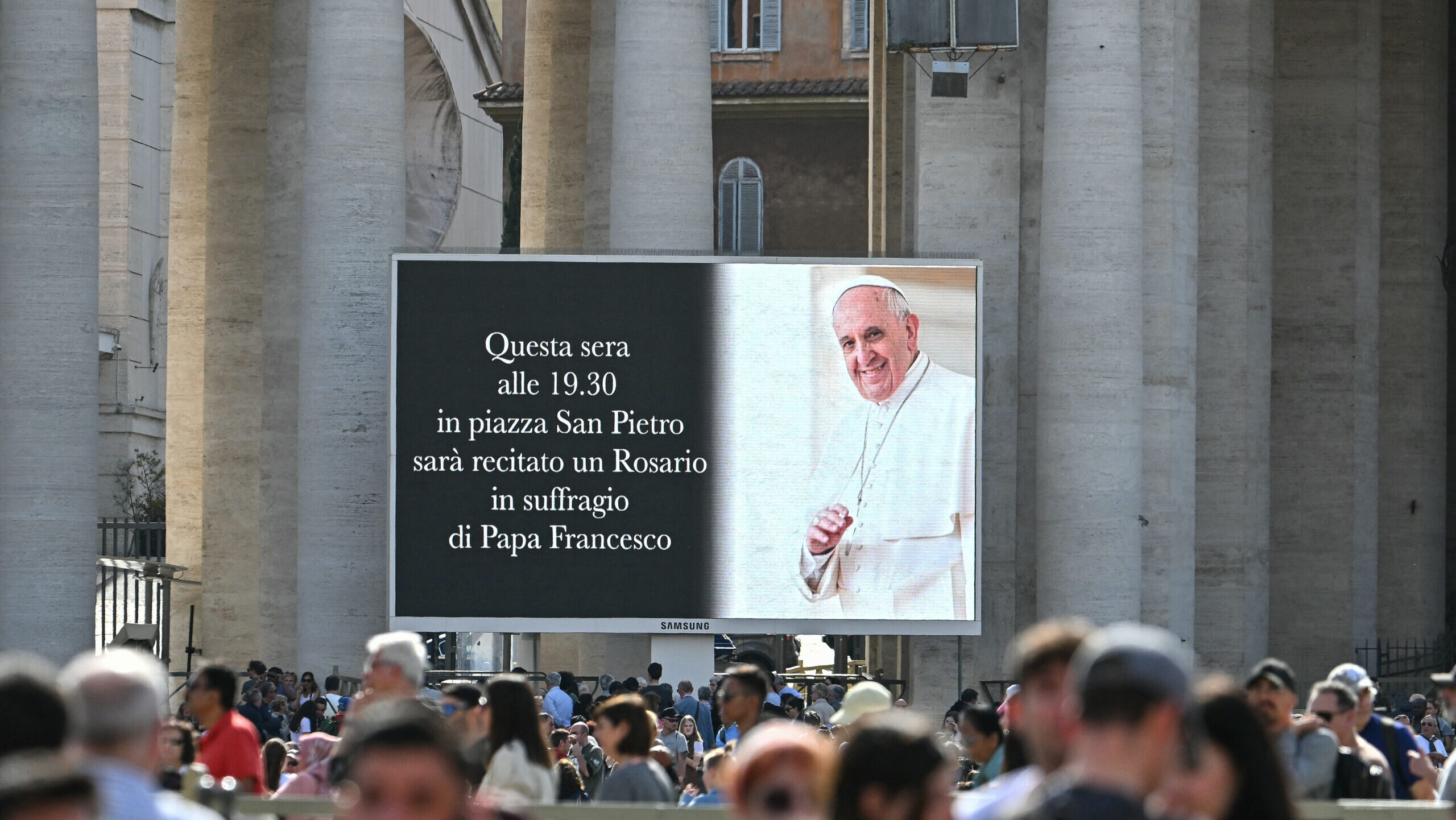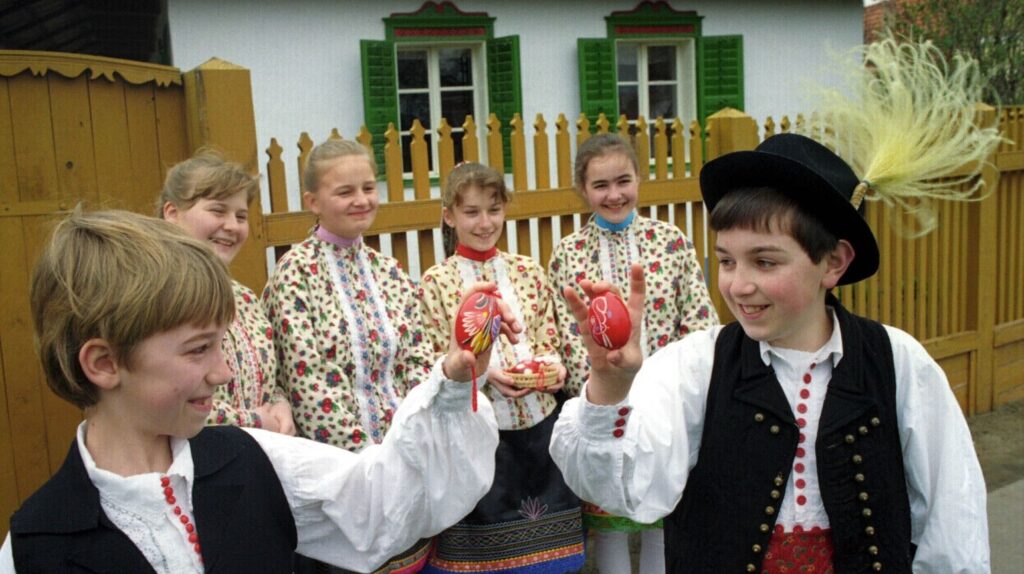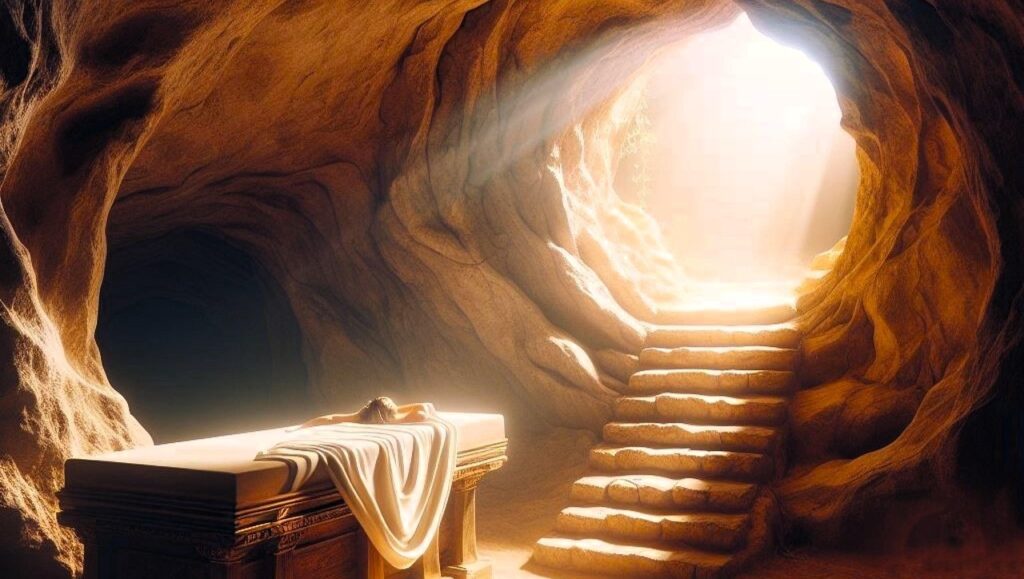Pope Francis died on Easter Monday, 21 April, 2025, at the age of 88 at his residence in the Vatican’s Casa Santa Marta. The tragic news was announced by Cardinal Kevin Farrell, Camerlengo of the Holy Roman Church, who stated that the Holy Father—born Jorge Mario Bergoglio—was found dead at 7:45am on Easter Monday. Director of the Holy See Press Office Matteo Bruni informed journalists that the Pope’s body could be transferred to St Peter’s Basilica on Wednesday morning, allowing the faithful to pay their respects.
The Pope had been admitted to the Agostino Gemelli Polyclinic Hospital on Friday, 14 February, after suffering from bronchitis for several days. His condition gradually worsened, and doctors diagnosed bilateral pneumonia on Tuesday, 18 February. After 38 days in hospital, he returned to the Casa Santa Marta to continue his recovery. Following the removal of part of his lung in 1957, Pope Francis frequently suffered from respiratory illnesses—a condition that worsened with age.
Hungary and Pope Francis
During his papacy, Francis visited Hungary twice. His first visit was in September 2021, when he celebrated the closing Mass of the 52nd International Eucharistic Congress in Budapest. During that visit, he met Hungarian Prime Minister Viktor Orbán and then-President János Áder, and addressed interfaith leaders, warning about the persistent threat of antisemitism across Europe.
He returned to Hungary in April 2023 for a three-day Apostolic Journey, during which he celebrated Mass at Kossuth Lajos Square, attended by approximately 100,000 people. Francis also met Ukrainian refugees and stressed the urgent need for peace in Ukraine and worldwide. Emphasizing the importance of dialogue, he said: ‘I believe that peace is always made by opening channels; peace can never be made by closure.’
In a message of condolence, Prime Minister Orbán recalled Francis’ visit, stating in a post on X: ‘His prayer to the Blessed Virgin Mary, Our Lady of Hungary, still resonates: “Instil into the hearts of people and the leaders of nations the desire to build peace.”’ The Hungarian prime minister added that ‘we will honour his legacy.’
Orbán maintained a close relationship with Pope Francis. After winning the 2022 parliamentary election, his first official foreign visit was to the Vatican. He returned again in late 2024 during Hungary’s EU Presidency, as part of his second peace mission. On that occasion, the two discussed prospects for ending the war in Ukraine, as well as key outcomes of the Hungarian presidency.
Orbán Viktor on X (formerly Twitter): "🕯️ We mourn the passing of His Holiness Pope Francis @Pontifex - a shepherd who led with courage & unwavering faith. Twice, we had the honour of welcoming him to Hungary. His prayer to the Blessed Virgin Mary, Our Lady of Hungary, still resonates: "Instil into the hearts of... pic.twitter.com/xZuqeZtHt1 / X"
🕯️ We mourn the passing of His Holiness Pope Francis @Pontifex - a shepherd who led with courage & unwavering faith. Twice, we had the honour of welcoming him to Hungary. His prayer to the Blessed Virgin Mary, Our Lady of Hungary, still resonates: "Instil into the hearts of... pic.twitter.com/xZuqeZtHt1
A Hungarian Pope?
Following the Pope’s death, the Catholic Church entered the traditional sede vacante period. The College of Cardinals will now oversee Church affairs with limited powers, as preparations begin for the election of a new pope. A papal conclave is typically convened within 15–20 days of the pope’s death. Only cardinals under the age of 80—currently 135—are eligible to vote. They will gather in strict secrecy in the Sistine Chapel, with two ballots held each day until a candidate secures a two-thirds majority. Ballot papers will be burned after each round: black smoke will indicate no decision, while white smoke will signal that a new pope has been elected.
Cardinal Péter Erdő, Archbishop of Esztergom and Budapest, also expressed his condolences, noting that Pope Francis paid particular attention to those on the margins—both in society and globally—who are often neglected. Cardinal Erdő has been mentioned as a potential successor, as recently noted by Italy Start.
A canon and theology graduate, Erdő has had a remarkable career: he became a cardinal at the age of 51 and was the youngest to take part in the 2005 conclave. At 54, he was elected president of the Council of Bishops’ Conferences of Europe, and re-elected in 2011, showing the trust placed in him by his European colleagues.
According to reports, Erdő has focused on improving Catholic relations with Orthodox churches—an area traditionally prioritized in the Vatican over, for example, Protestant relations. At 72 years old, Erdő is seen as a viable candidate, particularly as there is reportedly a desire to elect a pontiff young enough to carry out long-term reforms.
Related articles:








